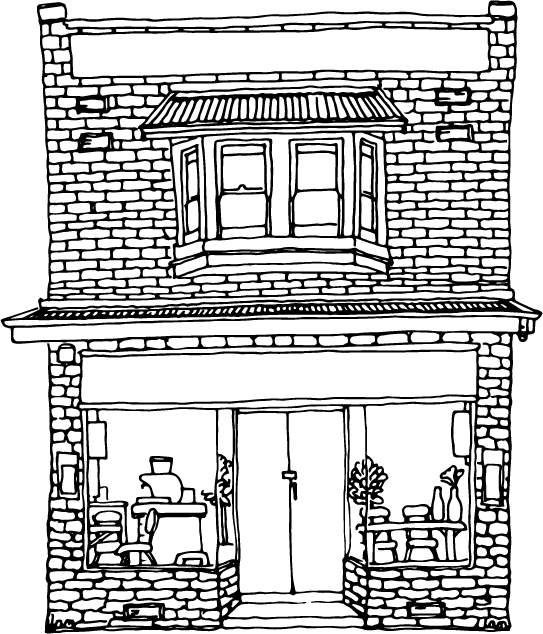Girma Bekele, Ethiopia (CM Natural) 120g


Girma Bekele, Ethiopia (CM Natural) 120g
Farm/producer: Tamirat Dereje/Girma Bekele
Origin/Region: Biloya, Kochere, Ethiopia
Variety: 74112
Process Method: carbonic maceration, natural
Altitude: 1950 masl
Brewing method: This coffee is best suited to filter and manual brewing methods.
Notes: This is a complex profile that develops as it cools, with notes of cherry, red apple and strawberry with soft floral notes.
Ethiopia - G Broad Trading PLC
Tamirat Dereje/Girma Bekele, Biloya, Kochere, Grade 1 Carbonic Maceration
This specific lot was the result of a collaboration between Tamirate Dereje and Girma Bekele, who are family related, coffee was produced by Girma Bekele under the representation of Tamirat Dereje
Girma Bekele is based in Biloya village in Kochere is one of the early pioneers in this village for high quality coffee production, surprising us when he recounted to us how he ended up doing coffee farming by quitting his job at a local clinic as a nurse. He grew up in Biloya village in a coffee farming family. Throughout elementary and high school, he used to help his father in the
farming, harvesting and processing of coffee. Over time he developed a great interest in coffee farming In 2007, Girma inherited from his family a total of 5.16 hectares of coffee farm available in Biloya and Debo villages. When he received the farms, most of the old local landrace varieties which are poor in yield and disease susceptible were replaced by high yielding and disease resistant local landraces and improved coffee varieties.
Girma is passionate about modernizing his coffee farming practices and highly receptive to modern coffee production and processing technologies. He has been practicing coffee pruning, old tree rejuvenation through stumping and trying different coffee processing techniques such as this carbonic maceration natural process. His dedication helped him to improve his coffee production and productivity potentials and thereby resulted in big return on his income. He has been investing back his profits in different aspects like farmland acquisition, sending kids to school, coffee akrabi (supplier) business, acquisition of urban land for residential house building.
Coffee Processing
This Carbonic Maceration natural begins by fermenting unpulped red coffee cherries in an airtight container for 96 hours under shade. Complete removal of oxygen occurs as a result of Carbon Dioxide produced during the fermentation phase. A valve on the side of a container connected to a thin hose (tube) helps to remove carbon dioxide. The other end of the hose is inserted in a bottle of water to protect the diffusion of atmospheric oxygen into the sealed tank.
After 96 hours of fermentation without oxygen, the fermented cherries are transferred onto a raised african bed for further drying under the sun for 10-12 days.
During all these days, cherry quality control continues. A total of 11 Kg of red coffee cherry per square meter is distributed on a drying bed made of bamboo mat. To maintain uniform drying among beans, the coffee is turned around on the bed manually six times per day. The cherry is then covered with nylon mesh and plastic during the night time. Starting the 15th day, the trend of coffee bean moisture loss is monitored to pull the dried cherry off the bed if the coffee bean attains a moisture level between 9.5% and 10.5%.
Jabanto Producer Group
Jabanto farmers business group was established in 2018 with the help of G Broad PLC. An initial 29 smallholder coffee farmers from Gedeo zone founded the group in 2018 and the size of the group kept expanding over years - today there are 87 registered smallholder coffee farmers in the group. The group tries to produce different coffee types: regional lots, village level lots, single farmer lots, variety lots and processing lots. The collaboration between Bi-Lab and Co-Lab, specialized coffee laboratories owned by G Broad in Addis Ababa and Condesa in Sydney respectively, could help better define coffee sourcing approaches, quality control mechanisms, marketing and promotion opportunities for farmers.
Single farmer lots represent the largest percentages of the product developed at Bi-Lab and Jabanto, Condesa's coffee sourcing collaborators at origin in Ethiopia. Promoting coffee lots under the name of a smallholder coffee farmer is at the heart of our business and development philosophies. Out of 87 registered member farmers in the Jabanto farmers business group,
those farmers who produce an outstanding coffee with superior quality and cup score are promoted as a single farmer lot. We pay a better and higher price for a single framer lot as compared to a composite (group) lot - for example Jabanto lot. We believe that rewarding farmers for quality is a good mechanism to create competition among farmers for quality and motivate them to produce better quality coffees year after year.
General information
● Altitude: 1950 m.a.s.l
● Kebele (Village): Biloya
● Woreda (County): Kochere
● Zone: Gedeo
● Region: Southern Nations Nationalities and Peoples Region (SNNPR)
● GPS Coordinates: 6.061258016473331, 38.14752081638115
● Average Rainfall: 1800 mm
● Soil Type: Nitosols
● Average Farm Size (Hectares): 5.16
● Founding year with Jabanto: 2018
● Variety: 74112





